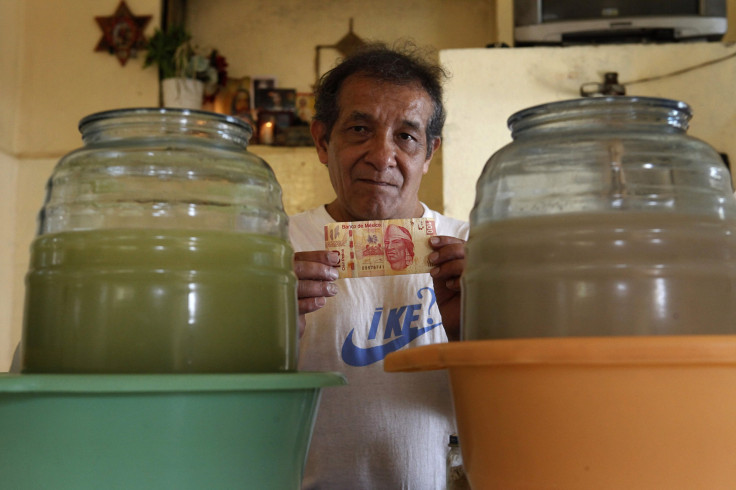Latin America's Minimum Wage Battles

As labor strikes in the fast-food industry have reignited the U.S. debate over raising minimum wages, another battle over wages has been raging south of the border. Over the past several weeks, Mexico has seen a rising wave of pressure to increase its minimum wage, which is one of the lowest in Latin America. Argentina and Brazil are pushing through with major hikes, but their high inflation means that higher wages may not necessarily buy more.
Mexico City’s mayor, Miguel Mancera, has been at the forefront of the charge to raise the minimum wage in Mexico after proposing to hike local wages. Mancera argued that the current minimum salary – at around $5.08 a day, Mexico is the only Latin American country with a minimum wage well below the poverty line – has lost 77 percent of its purchasing power due to inflation over the past 35 years. Around 6.5 million Mexicans earn this wage, according to analysts’ estimates.
Mancera’s proposal, submitted to Mexico’s legislature last week, calls for raising minimum salaries to 82.9 pesos a day – or about $6.26 – for the coming year, with subsequent annual increases until the wage reaches 171 pesos a day by 2018, the equivalent of about $12.90.
Rising pressure from political opposition parties, combined with the fact that real wages have not increased since 1976, signal that the current political momentum could conceivably be enough to push through a long-awaited increase in the coming weeks, with some economic analysts calling an increase “inevitable.” But business leaders and some policymakers have been pushing back. Mexico’s labor secretary, Alfonso Navarrete Prida, has said a minimum-wage hike could lead to rising inflation and hamper economic growth.
But if an “inevitable” minimum wage increase is dragging along in Mexico, it’s surging ahead in Brazil and Argentina, the latter of which recently announced it would increase minimum salaries by a whopping 31 percent for 2015.
But as Argentina grapples with a falling peso after its second default this year, the wage hikes may not be enough to keep up. “My wages went up 18 percent last year while inflation was around 25 percent,” a mathematics teacher told Reuters. “This year will likely be worse.”
In Brazil, where Dilma Rousseff’s government raised wages by 6.78 percent last year, the administration has approved a forthcoming increase of 8.8 percent to 724 reals, or $331, a month. The moves in both Argentina and Brazil have prompted Navarrete Prida to take to the stage at the Group of Twenty summit this month to criticize what he said were artificial raises that were not based on increased productivity.
“Our Argentinean brothers have elevated the minimum wage by 30 percent, but they have 40 percent inflation,” he said. “And the Brazilians, who are constantly raising [their minimum wage], have declared an economic recession after registering two trimesters of zero growth,” he said.
© Copyright IBTimes 2024. All rights reserved.





















